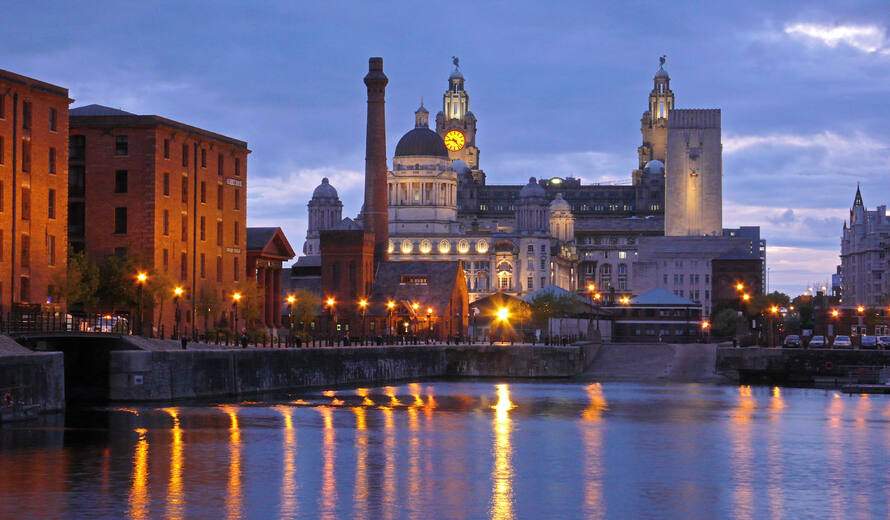As of today, the United Kingdom has one less World Heritage Site: it is the Port of Liverpool, which was removed from theUNESCO list during the 44th session of the World Heritage Committee being held these days, July 16-31, in Fuzhou, China. The Port of Liverpool (officially the site is called “Liverpool - Maritime Mercantile City”) had been inscribed in 2004, and was listed as World Heritage at Risk in 2012, due to the city’s development policies that threatened the integrity of the site. Projects deemed detrimental to the value of the site include Liverpool Waters, a large complex of buildings and skyscrapers that will occupy an area of the now disused harbor, and the Everton soccer team’s new stadium.
“Since then,” UNESCO points out, “the project has gone ahead along with other developments both within the site and its buffer zone. The Committee believes that these developments are detrimental to the authenticity and integrity of the site.” Liverpool’s historic city center and harbor areas had been inscribed as a World Heritage Site to testify to the development of one of the world’s major trading centers in the 18th and 19th centuries. The site was also important as a witness to pioneering developments in modern port technology, transportation systems and port management. But the city preferred to point in a different direction: Liverpool is thus the third site to be delisted, after Dresden’s Elbe Valley (Germany) and the Arabia Oryx Sanctuary (Oman), the former because of impactful development policies and the latter because of the Omani government’s decision to reduce the park’s acreage, which has also resulted in a drastic reduction in the population of the threatened oryx animal.
“Any deletion from the World Heritage List,” UNESCO comments, “is a loss to the international community and to internationally shared values and commitments under the World Heritage Convention.” Liverpool Mayor Joanne Anderson said she was “disappointed and concerned” about UNESCO’s decision, and announced that the city council would consider appealing the exclusion. According to Anderson, Unesco has not visited Liverpool in ten years and it is in her view “incomprehensible” that the body would rather see brownfield sites than a new stadium that will attract hundreds of thousands of visitors, and she added that cities like Liverpool should not be put in the position of choosing between maintaining the status quo and creating new regeneration opportunities and jobs. The fact is, however, that UNESCO makes its choices based on other criteria: if a place is therefore heavily transformed, it loses the character of authenticity that gives it exceptional status. Preservation associations think differently from the mayor: Henrietta Billings, head of Save Britain’s Heritage, called the cancellation “a national embarrassment,” and that Liverpool is an example of the government’s “spend and forget” attitude toward many cultural assets.
And now all eyes are on Venice, which is in danger of coming to the same end as Liverpool: UNESCO, in this regard, has already issued its warnings.
 |
| Unesco removes Liverpool port from World Heritage list |
Warning: the translation into English of the original Italian article was created using automatic tools. We undertake to review all articles, but we do not guarantee the total absence of inaccuracies in the translation due to the program. You can find the original by clicking on the ITA button. If you find any mistake,please contact us.